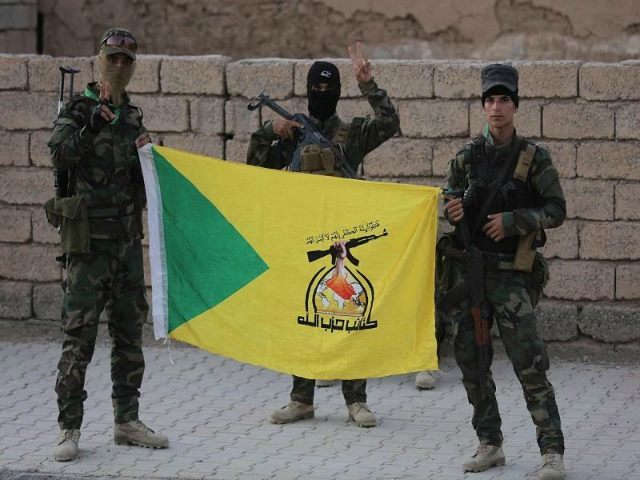The Wall Street Journal reported this week that Iraqi Shiite militia fighters are “pouring into Syria to reinforce the Assad regime’s siege of Aleppo, further complicating the tangled web of alliances the U.S. relies on to fight Islamic State, which can turn an ally on one side of the border into an enemy on the other.”
This is very literally the case with the Shiite brigades, who have been working alongside U.S.-backed Iraqi government troops in that country but are now shooting at U.S.-backed rebels in Syria.
The WSJ estimates over a thousand Shiite fighters rolled into Iraq in September, joining some 4,000 who were already deployed around besieged Aleppo. In fact, the Shiites make up fully half of Assad’s ground forces in the area.
Assad, and most of the Syrian ruling elite, are members of the Alawite sect of Shia Islam, and Assad is strongly aligned with the dominant Shiite power, Iran. Syria is a Sunni-majority nation. Iraq is also beset by sectarian problems, including fears that Shiite militia groups are extending Iran’s unhealthy influence in the country. Of course, the previous Sunni-dominated government of Saddam Hussein is not remembered fondly by Iraqi Shiites, who comprise a slight majority of the national population.
The Wall Street Journal notes that Iraqi Shiite forces are fighting alongside Iranian Revolutionary Guards, Hezbollah militia from Lebanon, and even Afghan Shiite troops in Aleppo, filling in the manpower gaps created by Assad’s defeats and defections in earlier years of the Syrian civil war.
Iraqi Shiite militia commander Hashem al-Mosawwi is quoted by the Journal describing Sunni opposition groups in Iraq as “terrorists” who “cause all problems in the region and the world,” and therefore “must be stopped.”
The Obama administration, unsurprisingly, had no official response to this description of its soon-to-be-massacred allies in Syria.
As the WSJ points out, Iraq’s Shiite fighters theoretically have more pressing concerns in Mosul, where a massive operation to clear out the Islamic State has been brewing for the past year.
However, the Journal says Shiite militias are “expected to play only a marginal role in the battle for Mosul, despite having successfully led some battles to evict Islamic State from Iraqi cities and towns, including Sunni-majority areas such as Tikrit.”
This will come as a relief to Turkey, which wants to play a major role in the liberation of Mosul, in part because it sees itself as the guardian of Sunni Muslims.
Turkish Prime Minister Mevlut Cavusoglu on Friday said that the “greatest danger for the Sunni population” in Mosul was “being forced to choose between Shiite militias and Daesh.” Daesh is another name for ISIS.
The Iraqi government has been complaining about the presence of Turkish troops on its soil, and Shiite militia leaders have flatly threatened to attack the Turks once the Battle of Mosul begins. There will be some allied commanders in the region who are relieved at the prospect of Shiite fighters heading off to fight in Syria, thus reducing the odds of a sectarian bloodbath when Mosul is recaptured from the Islamic State.

COMMENTS
Please let us know if you're having issues with commenting.